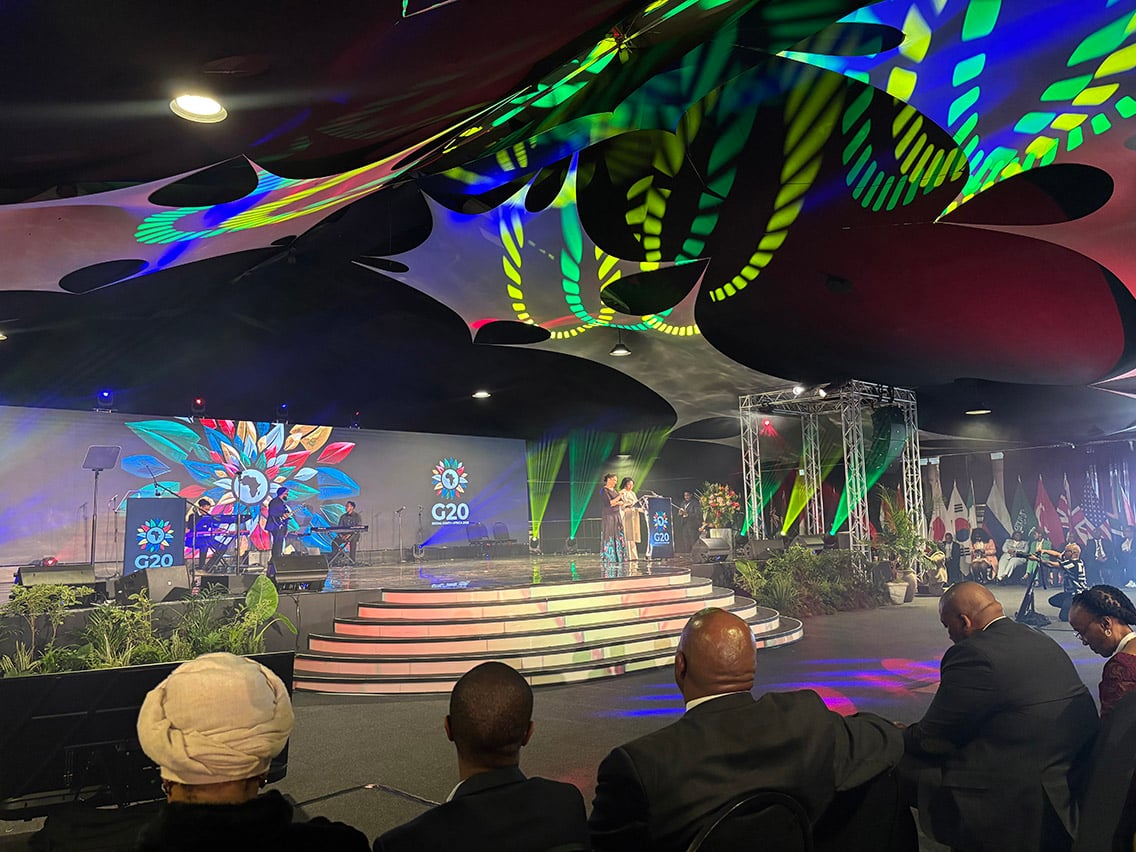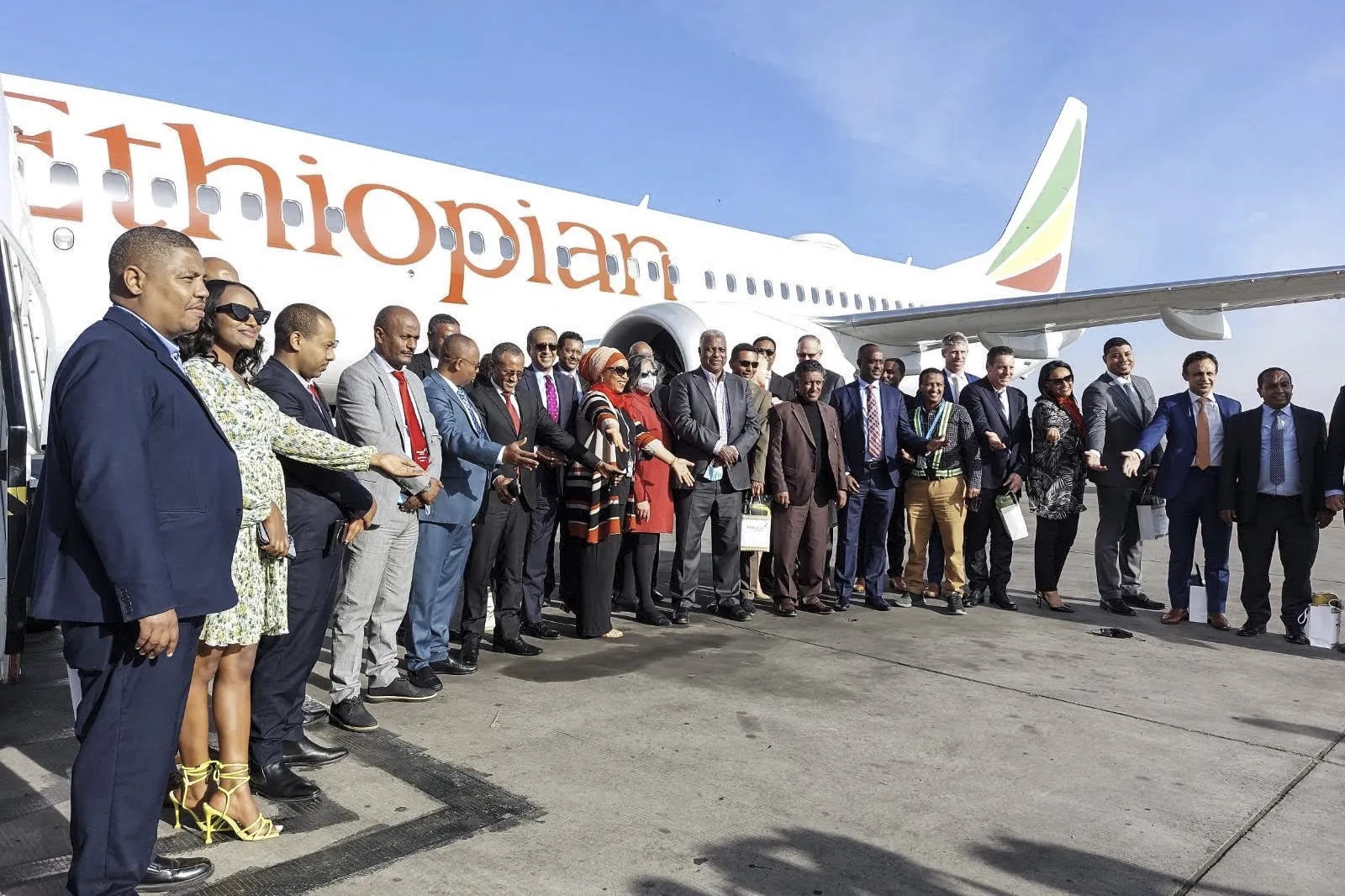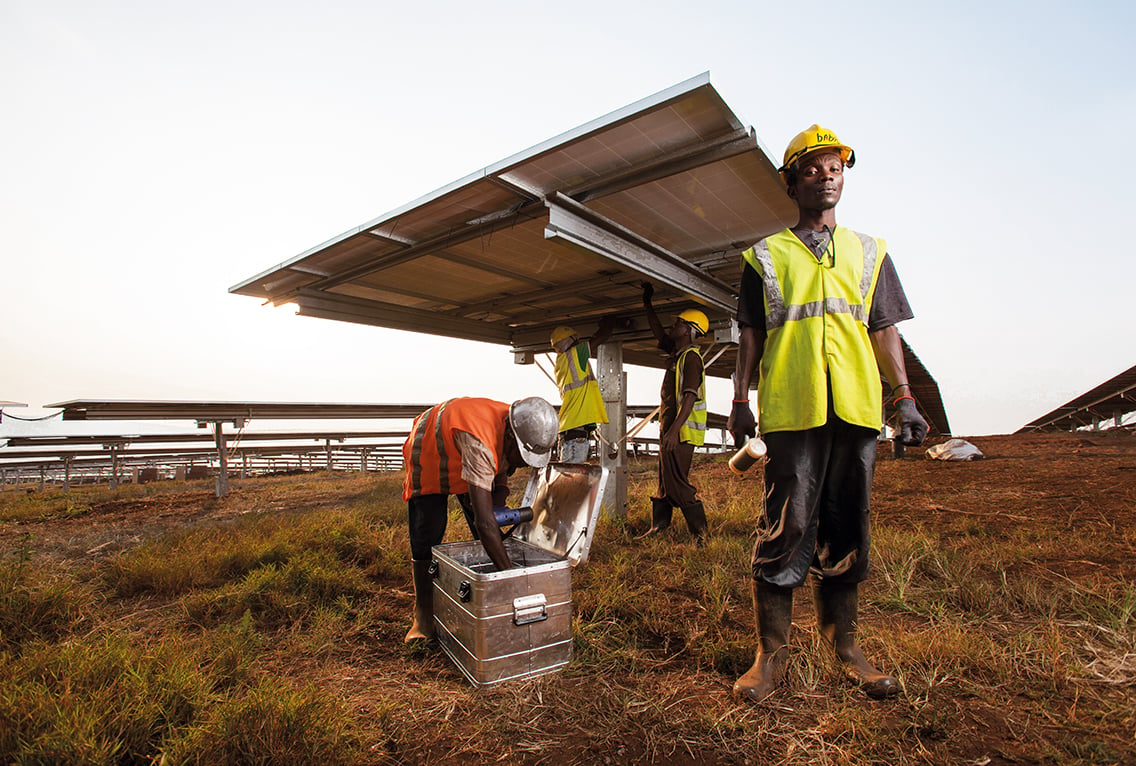
This article was produced with the support of AUDA NEPAD
As the world gathered in Johannesburg for the G20 Social Summit, it became clear that Africa is no longer merely a participant in global development discourse—it is shaping it.
The Government of South Africa and its people deserve commendation for their historic leadership and distinguished chairship of the G20. Their commitment to hosting the Social Summit demonstrates a vision that places people at the centre of development, a principle that resonates deeply with Africa’s own aspirations.
Africa’s growing influence in the G20
Since Africa’s accession to the G20 as a full member in 2023, the African Union Development Agency (AUDA-NEPAD) has worked tirelessly to ensure that partnerships with Africa are grounded in mutual respect, accountability, solidarity, and sustainability. We have made it clear: the world must engage with us on terms that reflect our agency and aspirations.
The G20 engagement groups have proven vital in these conversations. AUDA-NEPAD has actively participated across multiple platforms throughout the year. I had the honour of serving as Co-Chair of the B20 Trade and Investment Working Group for 2025—the G20 dialogue forum for the global business community. This role offered an extraordinary opportunity to influence global policy on creating a new trade and investment deal for Africa, promoting stability in global trade, and fostering a climate-responsive trade system.
We also actively participated in the T20 as a Policy Bridge Tank member, submitting policy briefs, engaging in conferences, and contributing to the overall T20 agenda to amplify Africa’s voice. Earlier this year, our Africa Policy Bridge Tank Programme, together with SAIIA, the Institute for Global Dialogue, and the Institute for Pan-African Thought and Conversation, hosted a High-Level Policy Dialogue under the theme “Strengthening African Agency in the G20 within the Emerging Global Order.” We were privileged to have Deputy President Paul Mashatile honour us with his presence and contributions. Additionally, we participated in shaping recommendations aligned with Africa’s positions on harnessing the demographic dividend at the Y20 Summit.
From Copenhagen to Johannesburg: A deepening ambition
The global social development journey from Copenhagen to Seville, Doha, and now Johannesburg reveals a steady deepening of collective ambition. Copenhagen in 1995 set the foundation by prioritising poverty eradication, full employment, and social integration. Thirty years later, at the 4th International Conference on Financing for Development in Seville, the world confronted shrinking official development assistance and the urgency of sustainable domestic financing, while underscoring that investment in social sectors is central to economic transformation.
The recently concluded Doha World Summit for Social Development reaffirmed global commitments to expanding social protection, ensuring access to education and health, and promoting productive and inclusive societies. Now, meeting in Johannesburg, we are called to translate these commitments into concrete actions that truly put people at the centre of development.
As we reflect on these global commitments, we must also reaffirm Africa’s own long-term vision as articulated in Agenda 2063. Aspiration 1 reminds us of the Africa we are building—a prosperous continent grounded in inclusive growth and sustainable development. Aspiration 6 emphasises an Africa whose development is people-driven, relying on the potential of its women and youth, ensuring that social policies and economic opportunities reflect the needs and aspirations of its citizens. These aspirations are not abstract ideals—they are the blueprint that shapes Africa’s development trajectory and guides our collective action.
The structural pressures of 2025
In 2025, the world confronts a set of structural pressures that are deepening vulnerabilities and reshaping the global development policy landscape. For Africa, these pressures are particularly acute and include a very young population—one in every five Africans is a young person, and by 2030, it will be one in four. This demographic reality presents both opportunity and challenge.
Fragmented social protection systems remain underfunded, uneven in coverage, and often unable to cushion households against shocks. Growing inequality continues to widen gaps between regions, genders, and income groups, with new pockets of poverty and fragility emerging. Rising public debt—increasing by over 20 percent in many member states—is narrowing fiscal space and weakening macroeconomic stability.
Weak labour markets are increasingly unable to absorb the millions of young Africans entering the workforce each year. Heavy import dependency, with close to 90 percent of medical products used in Africa imported from different parts of the world, exposes the continent to global supply-chain disruptions. Escalating climate change brings recurrent droughts, floods, rising temperatures, and land degradation.
Perhaps most concerning is the erosion of citizen trust, as communities increasingly feel co-opted rather than meaningfully consulted in policy decisions. This highlights the urgent need for renewed social compacts, inclusive dialogue, and transparent governance. Across our continent, we continue to witness governance challenges, including constitutional disruptions, pressures on democratic processes, and shrinking civic space.
This is the landscape of 2025—one that underscores the need to strengthen resilience, deepen democratic consolidation, and reinforce Africa’s institutional architecture. We must emphasise this fundamental truth: there can be no development without peace and no peace without development.
Turning challenges into opportunities: AUDA-NEPAD’s strategic interventions
At AUDA-NEPAD, we are implementing three significant interventions to respond to the social challenges we face on the continent and to turn challenges into opportunities.
First, advancing maternal and child health. We invested 100 million US dollars into our African Demographic Dividend and Sexual and Reproductive Health Programme to advance the maternal, newborn, and child-health agenda as a critical intervention in harnessing Africa’s demographic dividend. Through this programme, we have provided catalytic funding to member states and regional economic communities to strengthen governance, coordination, and integration, advance policy through evidence-based research that influences policymaking, and provide high-level advocacy, capacity development, and technical assistance.
Second, empowering youth and women. Our Creating Opportunities for Youth and Women in Africa (COYWA) Programme enhances the socio-economic empowerment of youth and women by strengthening their pathways to entrepreneurship, ensuring financial inclusion, and providing capacity-building interventions. With these instruments, more young African entrepreneurs and women-led businesses are learning modern business practices, accessing microcredit and markets, and contributing to job creation.
Third, strengthening institutional capacity. To capacitate national and regional institutions, we deployed the Strengthening National Institutions Supporting Vulnerable Communities (SNVC) programme, built on strengthening national and regional systems through technical advisory support, institutional coordination, and platforms that enable countries to share best practices and pool resources.
The African Union Development Fund: Africa’s own solution
I am equally pleased to share that we are in the final stages of concluding our feasibility study of the African Union Development Fund, a fund by Africa for Africa aimed at fast-tracking the realisation of Agenda 2063. To operationalise this fund, we have already engaged with the Alliance of African Multilateral Institutions and several African Sovereign Wealth Funds to prepare for implementation, thereby leveraging continental capital, institutions, and expertise while focusing on African ownership, sound governance, and financial sustainability.
The Africa we want
In this great African moment, let us choose Ubuntu—unity of purpose—and pursue development with unwavering hope. Let us remember that every dollar spent in social service systems, every clinic and school built in a rural village, every loan given to young entrepreneurs, is an investment in the Africa we want.
With solidarity, equality, and sustainability as guiding principles, the Africa of shared prosperity, peace, and human dignity is within our grasp. An Africa where development is people-driven, unleashing the potential of every woman and youth, can and will become a reality.






Recent Comments